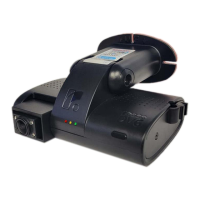1. FCC and IC Compliance Notice
This device complies with part 15 of the FCC Rules and with Industry Canada license-exempt RSS
standard(s). Operation is subject to the following two conditions: (1) This device may not cause harmful
interference, and (2) this device must accept any interference received, including interference that may
cause undesired operation.
Note: Changes or modifications to the device are not permitted and will void device compliance.
Note: This equipment has been tested and found to comply with the limits for a Class B digital device,
pursuant to part 15 of the FCC Rules. These limits are designed to provide reasonable protection against
harmful interference in a residential installation. This equipment generates, uses, and can radiate radio
frequency energy and, if not installed and used in accordance with the instructions, may cause harmful
interference to radio communications. However, there is no guarantee that interference will not occur in a
particular installation. If this equipment does cause interference to radio or other communication device
reception, which can be determined by turning the equipment off and on, the user is encouraged to try to
correct the interference by one or more of the following measures:
o Reposition other device antennas.
o Increase separation of the antenna and the offending equipment causing interference.
o Check device power connections to ensure power is stable.
2. Safety Precautions
2.1 Installation
• All positive wires connected to the vehicle should be fused and replaced with the appropriately rated
fuse below.
o Power Input: 5A Mini Fuse OR diagnostic connector 7.5A; Ignition Input: 2A Mini Fuse
• All wires carrying a positive voltage must be safely routed.
o ALWAYS secure harnesses or wires with provided zip-ties to prevent damage and shorting
over the life of the product. Additional zip-ties may be used if needed.
o NEVER route harnesses or wires across sharp metal surfaces, this might damage the wire
and cause a short.
o NEVER route harnesses or wires through metal holes without rubber grommets or loom.
o DO NOT route harnesses or wires with or without zip ties in front of any airbags
2.2 Usage
• The DV6 is intended to function as a driver aid and is NOT a replacement for a safe, attentive, well-
trained driver.
o The DV6 cannot counteract a driver who is impaired due to drowsiness, distraction, fatigue,
drugs, or alcohol. It is the driver’s responsibility to ensure the vehicle is being operated in a
safe manner and failure to do so can result in severe personal injury, property damage or
death.
o Keep both camera lenses free of obstruction to ensure optimal performance at all times.
Failure to prevent obstruction may result in unintended operation and might inhibit driver
safety features.
o Certain in-cabin conditions can negatively affect device performance such as: low visibility,
unique lighting, driver positioning, lens obstruction or smudging. This can result in false
warnings, no warnings or less than normal warnings.

